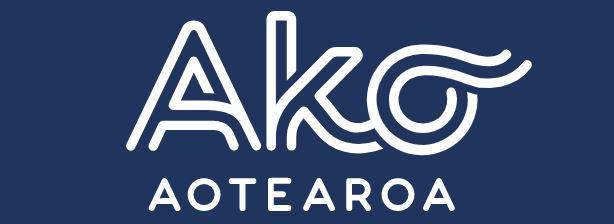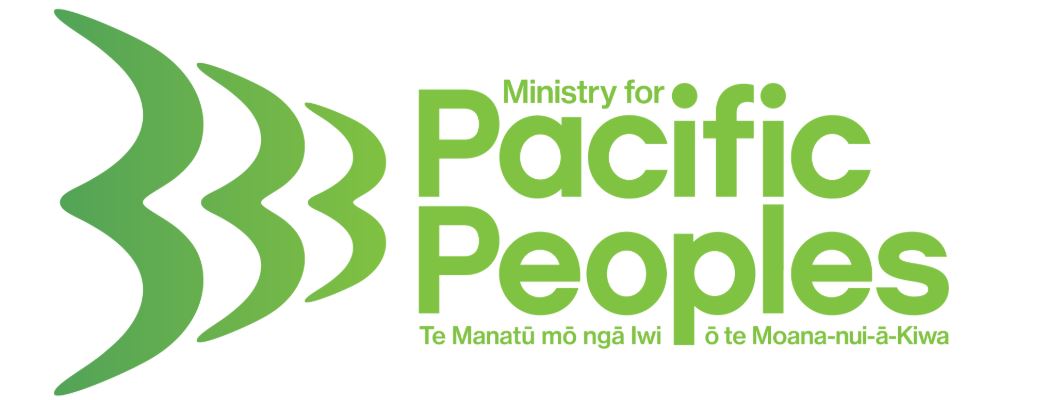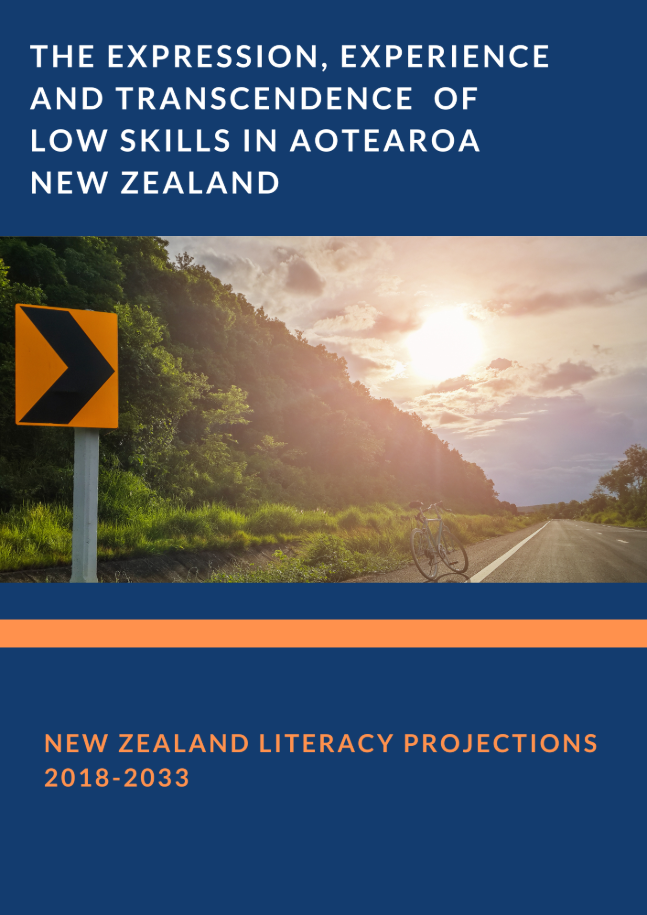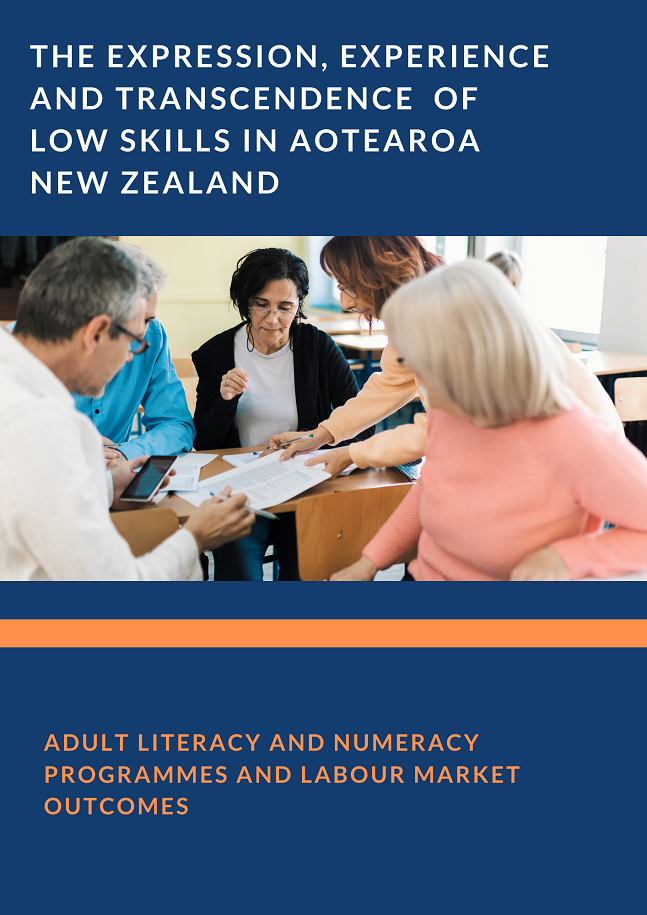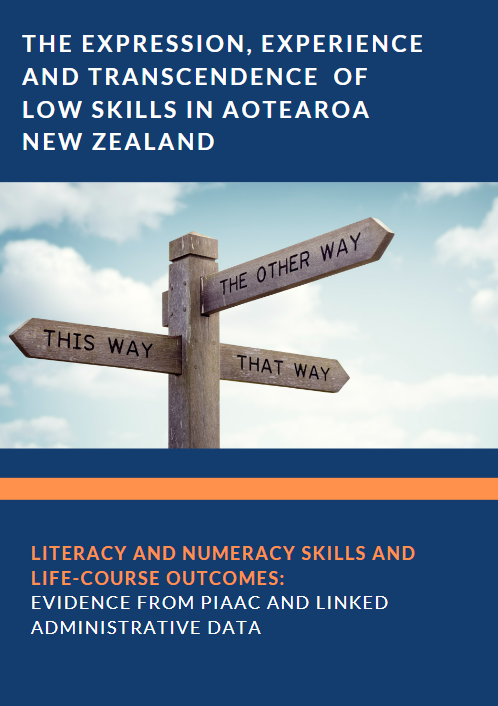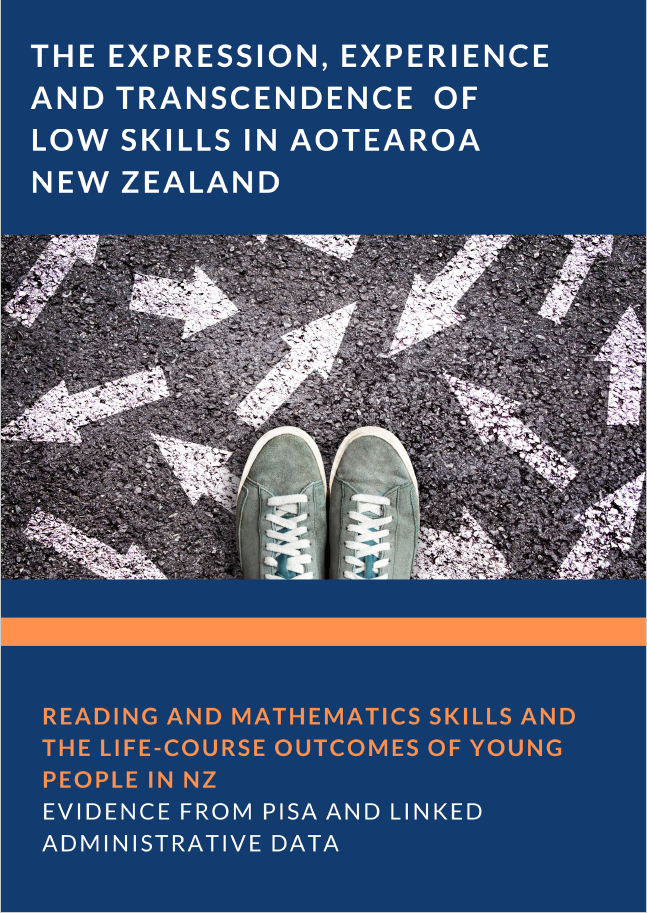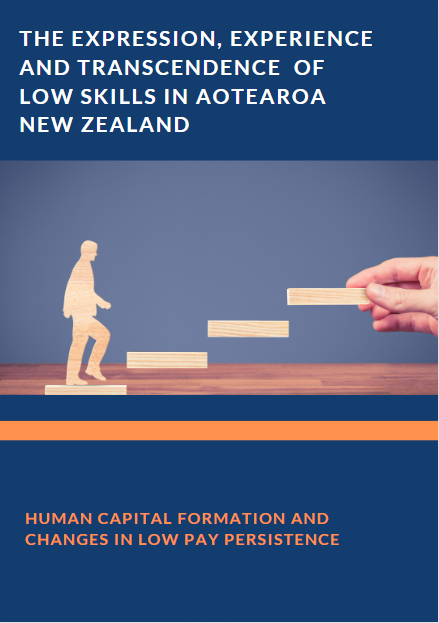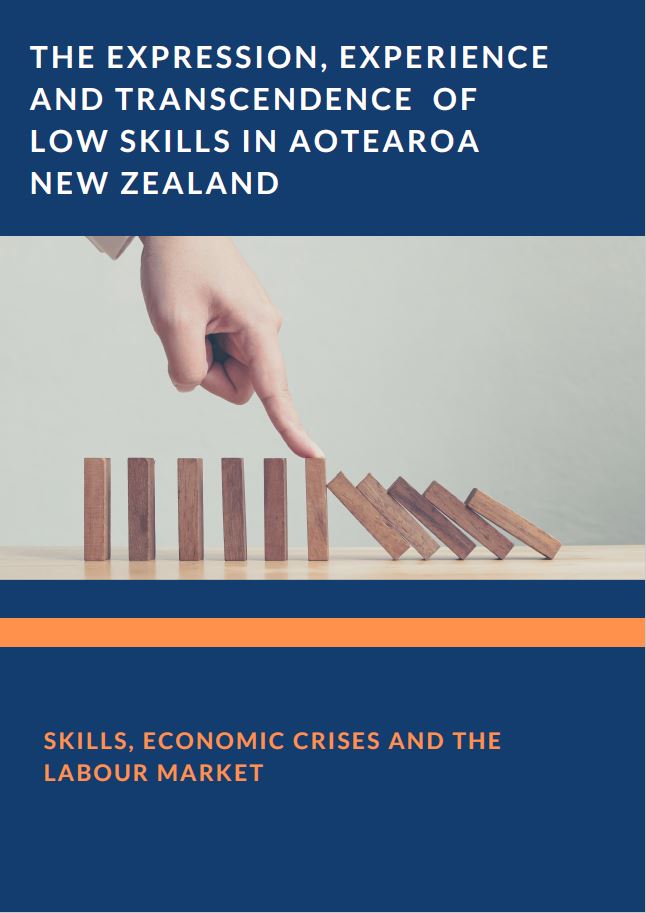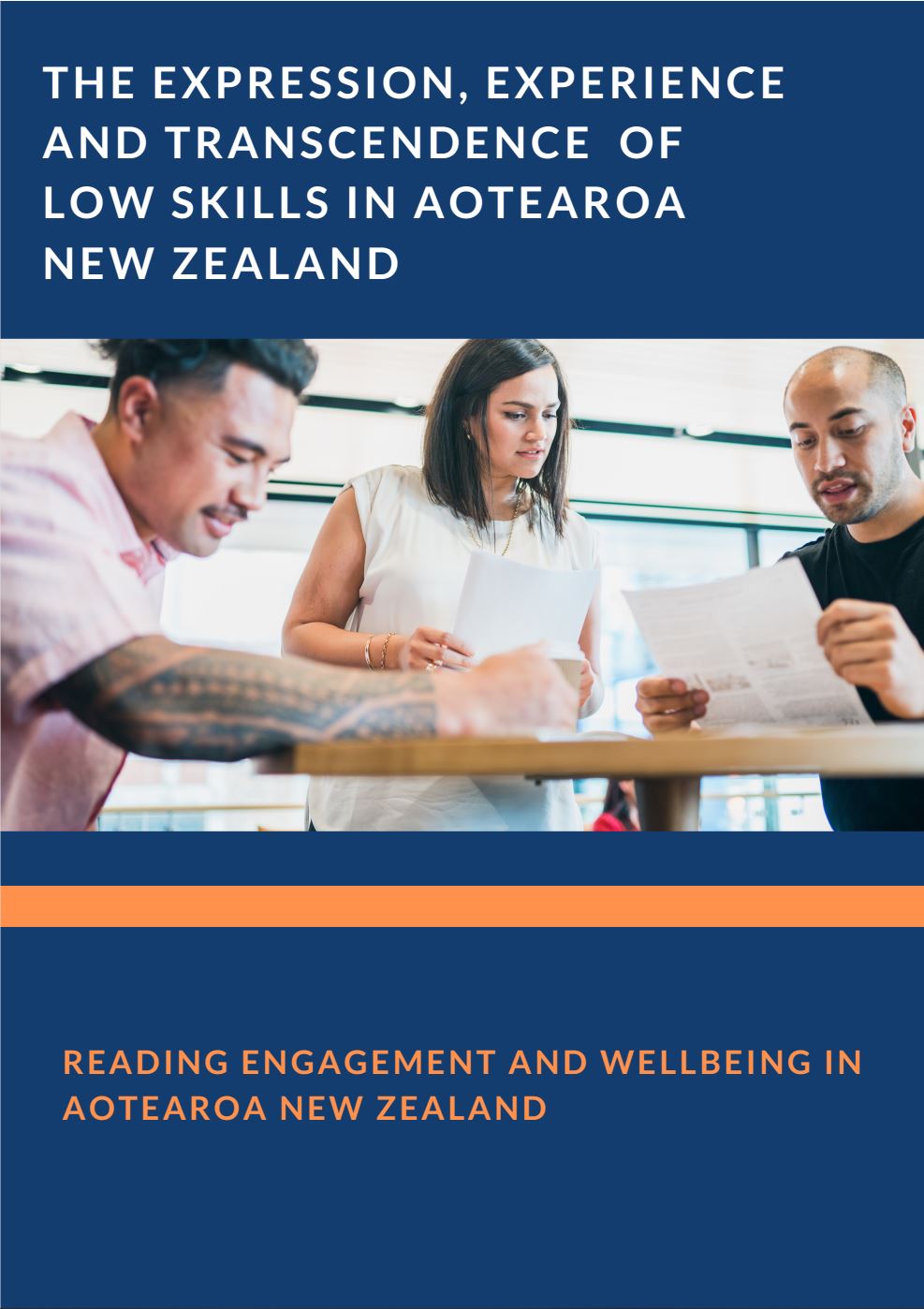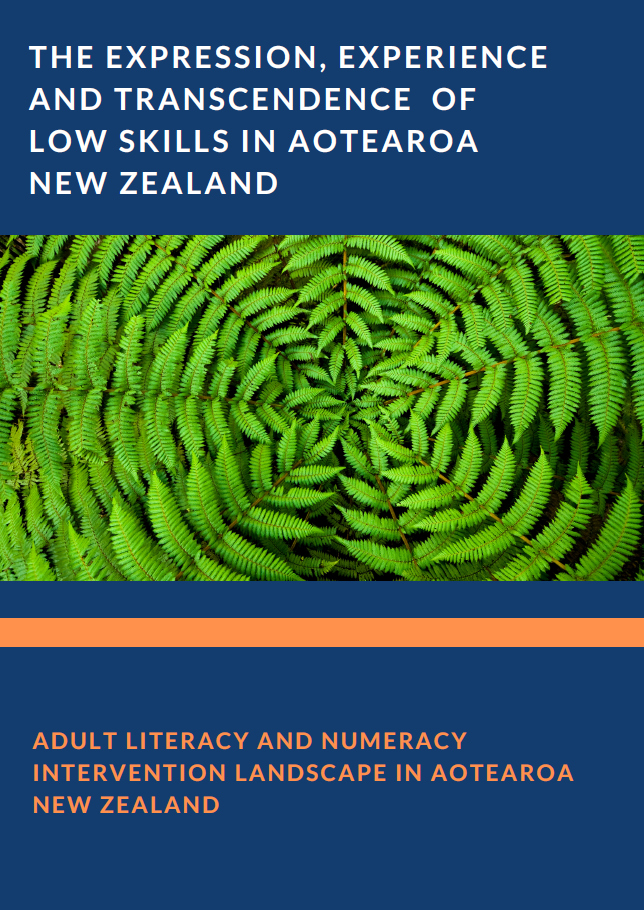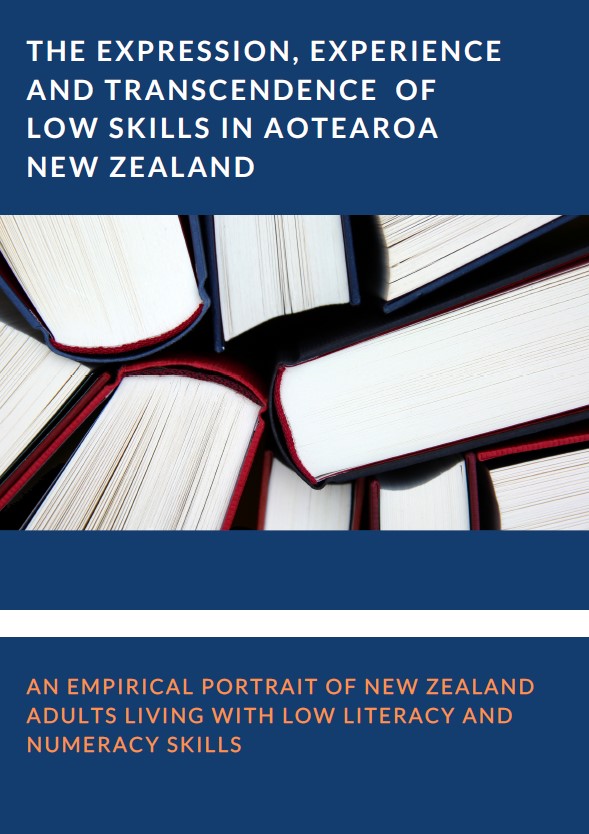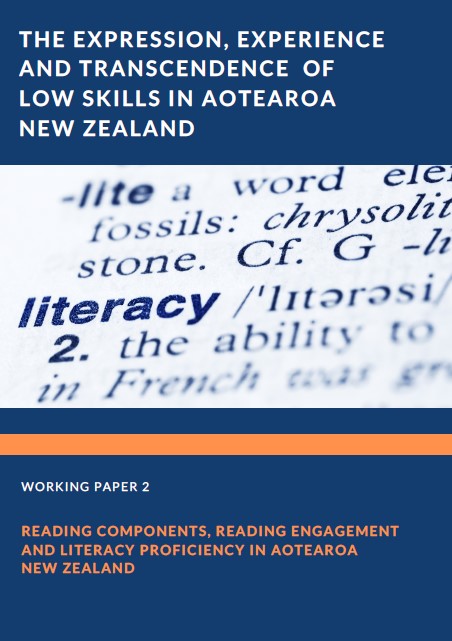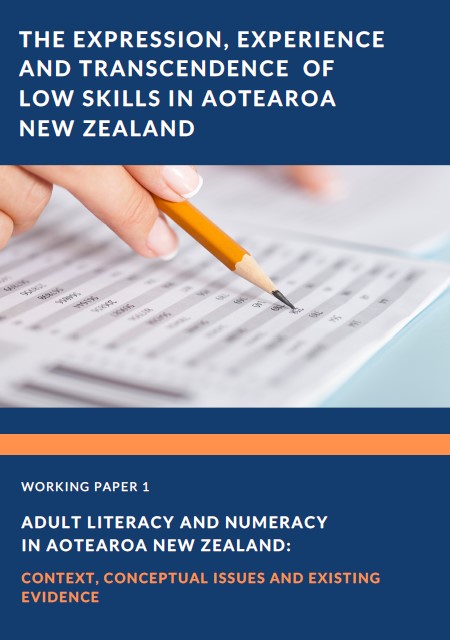Research Outputs
Working papers
New Zealand Literacy Projections
The aim of this paper is to derive projections of the average literacy score attained by the population, by gender and Māori /non-Māori, for an aggregate set of New Zealand regions. The estimated projections in this research illustrate a slow, gradual change in literacy levels over time, accompanied by a widening gap between regions' levels of literacy proficiency. The gap between Māori and non-Māori literacy scores (favouring non-Māori) is comparatively large and constant across the projection periods.
Adult literacy and numeracy programmes and labour market outcomes
This paper examines the effects of three broad types of L+N programmes separately: Workplace LN, Intensive LN and ILN English (for speakers of other languages). We find increases in education and training participation as a general activity indicator of whether a person is in employment, education or training shows positive results for all three programme types. There is little effect on workplace accident claims.
Skills & Life-course Trajectories of NZ Adults
This paper examines the life-course trajectories of NZ adults across different skill levels in literacy and numeracy. Findings show that adults with low measured skills have less favourable outcomes in a number of areas. They have lower rates of educational attainment, lower employment rates and average earnings, higher rates of hospitalisation, and higher rates of criminal offending and convictions.
Skills & Outcomes of NZ Youth
This research paper examines the life-course trajectories of a cohort of NZ youth using linked administrative data to track their outcomes. It finds that students with low measured skills have less favourable outcomes in a number of areas. Outcomes for Māori in both the low-skills and above-baseline groups are less favourable than those of their NZ European counterparts.
Human Capital Formation and Changes in Low Pay Persistence
This paper aims to broaden understanding of how persistence in low pay changes over time. We utilise population-wide tax records to track monthly labour market trajectories of workers who are observed in low paid employment during the initial period of analysis.
Skills, Economic Crises and the Labour Market
This paper examines the effect of two major economic setbacks, the Global Financial Crisis of 2007-09, and the COVID-19 lockdown in 2020, on wage progression for different skill level New Zealanders. The analysis links PIAAC survey data with Inland Revenue tax data to assess if higher skills help mitigate the negative impacts of an economic crisis.
Reading Engagement and Wellbeing
This research paper aims to disentangle the effects of two different aspects of literacy, literacy proficiency as measured by standardized tests, and reading engagement as measured by self-reports of everyday reading activities. The paper uses multivariate regression models on nationally representative survey data from New Zealand, to estimate the effects of reading engagement on earnings, health, social trust, political efficacy, and civic engagement.
Adult literacy and numeracy intervention landscape in Aotearoa New Zealand
This working paper describes the literacy and numeracy (L+N) intervention landscape in Aotearoa ascertained from discussions with key stakeholders in the sector. These discussions were focused on identifying key aspects of the L+N intervention landscape including high-level government policy and strategy, specific provider and referral pathways, and the type of individuals for whom L+N learning is designed.
An empirical portrait of New Zealand adults living with low literacy and numeracy skills
The aim of this research paper is to provide a comprehensive portrait of the population living with low literacy and / or numeracy (L/N) skills in NZ. Prior literature argues that “low basic skills levels of adults are a complex policy problem” that does not have “straightforward solutions”. This research paper aims to provide the baseline with which to understand the complex nature and landscape of low L/N skills in NZ.
We also developed an infographic to accompany and summarise some of our findings:
Reading components, reading engagement and literacy proficiency in Aotearoa New Zealand
This working paper develops multivariate models of how reading component processes are related to the higher order literacy proficiency assessed by the OECD’s Programme for the International Assessment of Adult Competencies (PIAAC) and to adults’ engagement with reading in everyday life.The differences observed in those relationships suggest that the use of practice-centred instructional strategies and designs for intervention programs may be particularly helpful to those living with low literacy.
Adult literacy and numeracy in Aotearoa New Zealand: Context, conceptual issues and existing evidence
This working paper provides a literature review to inform this research programme. It examines conceptual and definitional issues and relevant aspects of the New Zealand (NZ) context, and provides a high level overview of existing evidence. It discusses what is meant by ‘skill’ and the related concept of competency, and how these terms are associated with literacy and numeracy. It looks at how the OECD’s Programme for the International Assessment of Adult Competencies (PIAAC) defines and measures skills. It also looks at the existing evidence on NZ’s skill levels and patterns and the importance of skills to economic outcomes and wellbeing.
Articles & Reports
Wāhine Māori engagement with literacies
- The University of Waikato - Masters-Awatere, B., Howard, D., & Heaton, S.
In their voice: Adult learners' perspectives on literacy and numeracy, learning and wellbeing
- The University of Waikato - Furness, J., Piercy-Cameron, G., & Greensill, H.
Ko te ngako te kōrero: Māori understandings of literacy and numeracy
- The University of Waikato - Furness, J., Masters-Awatere, B., Piercy-Cameron, G., Cochrane, B., Rua, M. & Dixon, R.
Institutional racism and internalised racial oppression: evidence from the narratives of Samoans in the New Zealand workplace
- A. McCarthy (Ed.), Narratives of Migrant and Refugee Discrimination in New Zealand. Routledge - Ofe-Grant, B.
Adult literacy and numeracy in Aotearoa New Zealand: How does current research and organisational reporting align with the Living Standards Framework?
- The University of Waikato - Hockings, N. & Furness, J.
Empirical analysis of Pacific, Māori and ethnic pay gaps in New Zealand
- NZ Work Research Institute - Cochrane, B. & Pacheco, G.
The Pacific workforce and the impact of COVID-19
- NZ Work Research Institute - Pacheco, G., Plum A. & Tran, L.
Journal Articles
A Mātauranga Māori Perspective of Literacy for Adult Learners
- New Zealand Journal of Educational Studies - Furness, J., Rua, M., Masters‑Awatere, B., Piercy‑Cameron, G., Cochrane, B., & Heaton, Sharyn.
Research note: Empirical analysis of ethnic pay gaps in New Zealand
- New Zealand Journal of Employment Relations - Cochrane, B., & Pacheco, G.
Adults’ reading engagement and wellbeing in Aotearoa New Zealand
- PLOS ONE - Reder, S.
Basic reading and mathematics skills and the labour market outcomes of young people: Evidence from PISA and linked administrative data
- Economic Record - Meehan, L., Pacheco, G. & Schober T.
Adults’ Reading Engagement and Wellbeing in Aotearoa New Zealand
- The Public Library of Science ONE - Reder, S.
Rethinking Oceanic-Pacific Methods of Data Collection During COVID-19: Insights From the Field
- International Journal of Qualitative Methods - Ofe-Grant, B.
When There is No Way Up: Reconsidering Low-paid Jobs as Stepping-stones
- Economic Record - Dasgupta, K., Pacheco, G. & Plum, A.
Presentations
Workshop: Social policy and the labour market in turbulent times: (no) need for change?
Date: 19-20 July 2023
- Effects of literacy and numeracy programmes – empirical evidence from New Zealand - Thomas Schober, AUT
- The effect of literacy and numeracy programmes on labour market outcomes - Thomas Schober, AUT
Nuremberg Research Seminar in Economics
Date: 12 July 2023
- Effects of literacy and numeracy programmes – empirical evidence from New Zealand - Thomas Schober, AUT
NZAE Conference 2023
Date: 28-30 June 2023
- Reading and maths skills and the life course outcomes of young people in NZ - Gail Pacheco, AUT
- Adult skill proficiency and migrant/native wage assimilation - Christopher Erwin, AUT
- The effect of literacy and numeracy programmes on labour market outcomes - Thomas Schober, AUT
Hispanic-Serving Institution (HSI) Intersectionality Series
Date: 27 April 2023
- Quantitative intersectionality and student success at HSIs: two examples using administrative data - Christopher Erwin, AUT
AUT Faculty of Business, Economics, and Law Professional Development
Date: 23 April 2023
- Barriers and enablers to literacy and numeracy: insights from the Pacific people - Betty Ofe-Grant, AUT
Western Economic Association International Conference 2023
Date: 12-15 April 2023
- Effects of literacy and numeracy programmes – empirical evidence from New Zealand - Thomas Schober, AUT
- Reading and maths skills and the life course outcomes of young people in NZ - Lisa Meehan, AUT
Women of Colour Leadership & Allyship Summit
Date: 21-22 March 2023
- Gender & ethnic pay gaps: Evidence from New Zealand - Gail Pacheco, AUT
New Zealand Vocational Education and Training Research Forum
Date: 8 September 2021
- Rethinking Pacific methods of Talanoa data collection in post-Covid times: preliminary findings in Auckland - Betty Ofte-Grant, AUT
The Pacific Days Show - Pacific Media Network 531pi
Date: 12 May 2021
- The Pacific component of the MBIE low-skill project - Betty Ofte-Grant, AUT
Adult Literacy, Numeracy and Cultural Capability - Ako Aotearoa
Date: 14 April 2021
New Zealand Vocational Education and Training Research Forum
Date: 12 November 2020
Some of the topics covered include:
Supporting practice-based learning with digital technologies; Development and Early Delivery of a Degree Apprenticeship Model for Engineering Education; Working and learning together: Lessons learned from tutor capability building in Aotearoa New Zealand; and How do vocational literacy and language learning take place in an online and distance context?
- The Expression, Experience and Transcendence of Low-Skills in Aotearoa New Zealand - Gail Pacheco, AUT
- An Empirical Portrait of Adults Living with Low Numeracy and Literacy Skills in New Zealand - Lisa Meehan, AUT
- The Labour Market Returns to Literacy and Numeracy Skills in New Zealand: Evidence from PIAAC - Christopher Erwin, AUT with Lisa Meehan
- Reading Components, Reading Engagement and Literacy Proficiency in Aotearoa New Zealand - Stephen Reder, Portland State University
Productivity Commission
Date: 10 October 2022
- Reading and mathematics skills and the life-course outcomes of young people in NZ: Evidence from PISA and linked administrative data - Lisa Meehan, AUT
ProLiteracy Conference (San Antonio, Texas)
Date: 3-5 October 2022
- Adults’ reading engagement and wellbeing in Aotearoa New Zealand - Stephen Reder, Portland State University
Wellington & Auckland Workshop
Date: 22 - 23 September 2022
Research Work and Learning Conference
Date: 13 - 15 July 2022
- A learner centered framework: Reframing L+N policy interventions - Gemma Percy-Cameron, University of Waikato
WEAI, 97th Annual Conference
Date: May 2022
- Labor Market Returns to Adult Literacy and Numeracy Skills: A Focus on Migrant Assimilation Over the Lifecycle - Christopher Erwin, AUT
62nd Annual Conference of the New Zealand Association of Economists
Date: May 2022
- Skills, Economic Crises and The Labour Market - Alexander Plum, AUT
2022 AERA Annual Meeting
Date: April 2022
- Understanding Inequity at Hispanic-Serving Institutions: Intersectional Analyses of Outcomes by Race, Gender, and First-Generation Status - Christopher Erwin, AUT
International PIAAC Research Conference 2022
Date: March 2022
- Labor market returns to adult literacy and numeracy skills: A focus on migrant assimilation over the lifecycle - Christopher Erwin, AUT
AEFP 47th Annual Conference
Date: March 2022
- Labor market returns to adult literacy and numeracy: a focus on migrant assimilation over the lifecycle - Christopher Erwin, AUT
9th GEBF Conference Bamberg
Date: March 2022
- Low Literacy, Job-Related Training, and Employment Outcomes: A Longitudinal Perspective on the Life Outcomes of Low-literacy Adults - Stephen Reder, Portland State University

